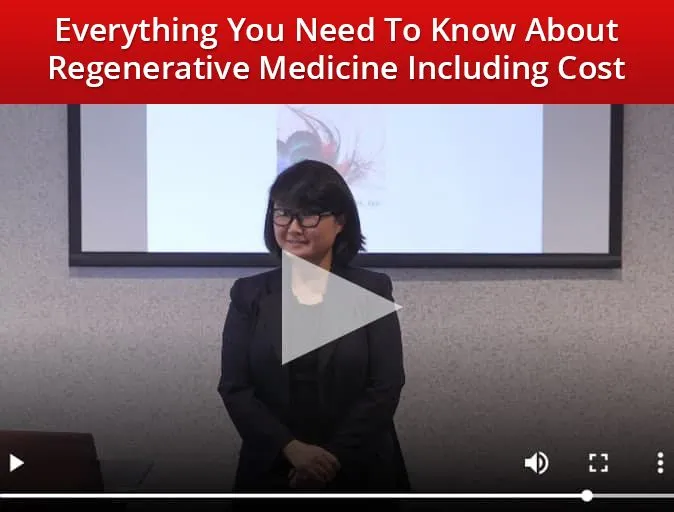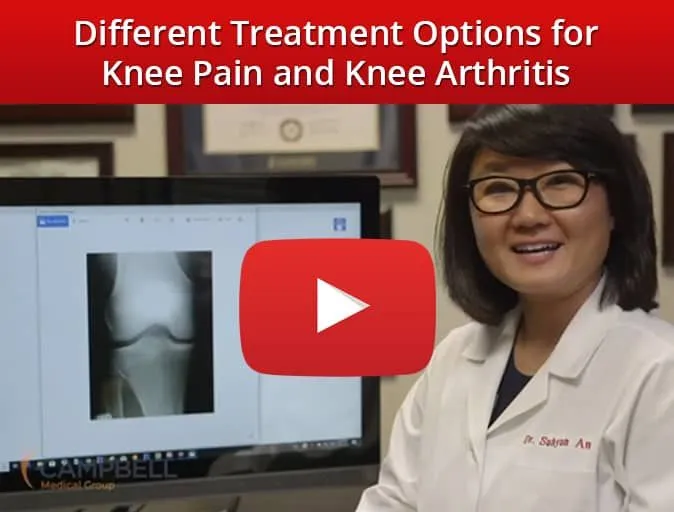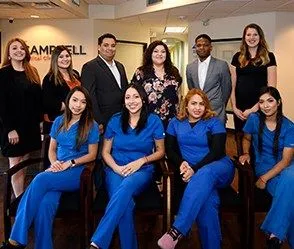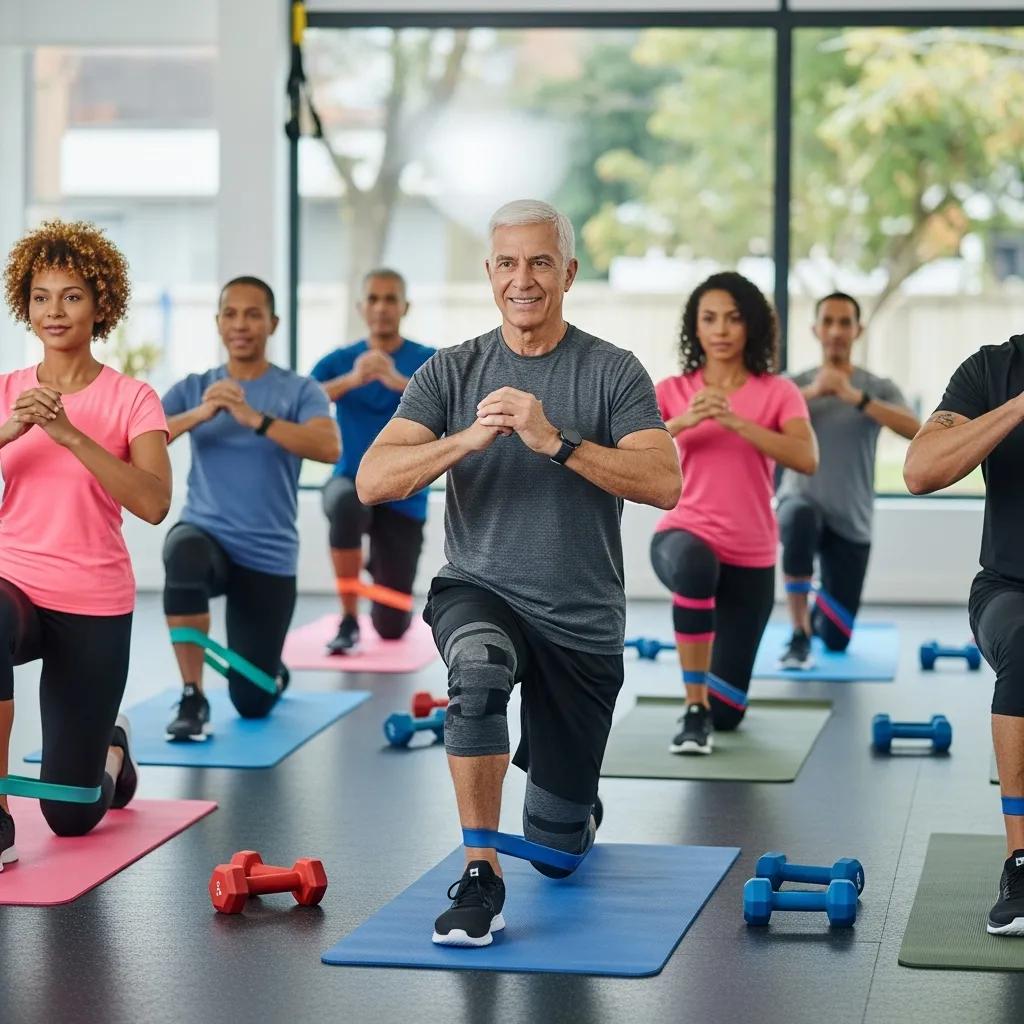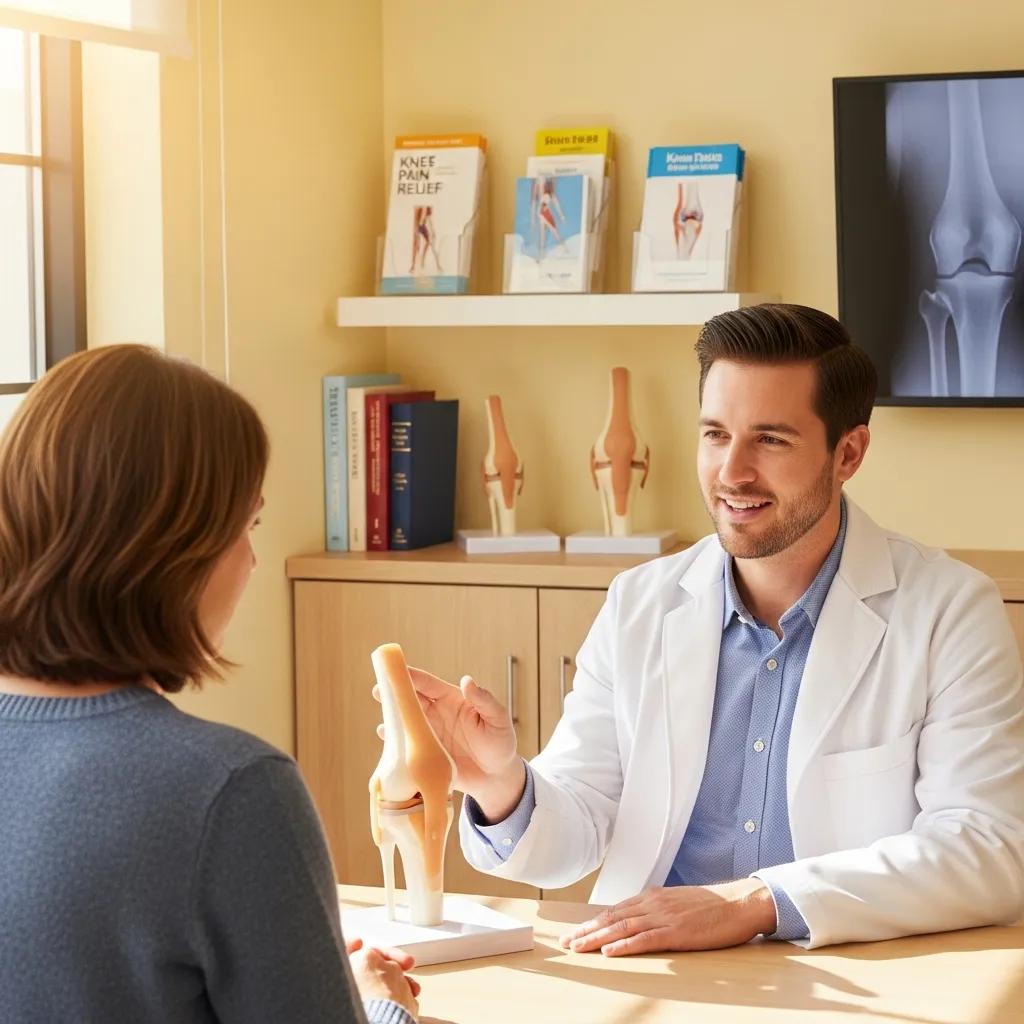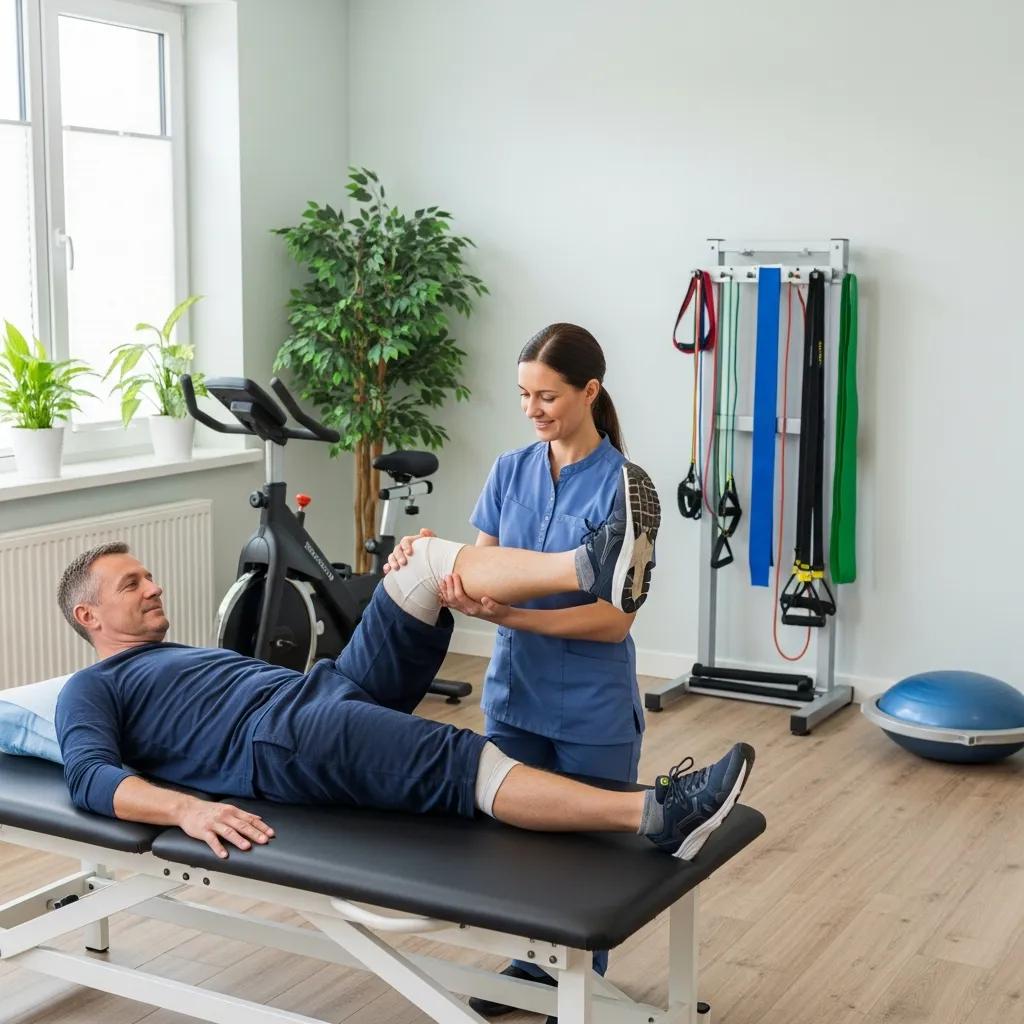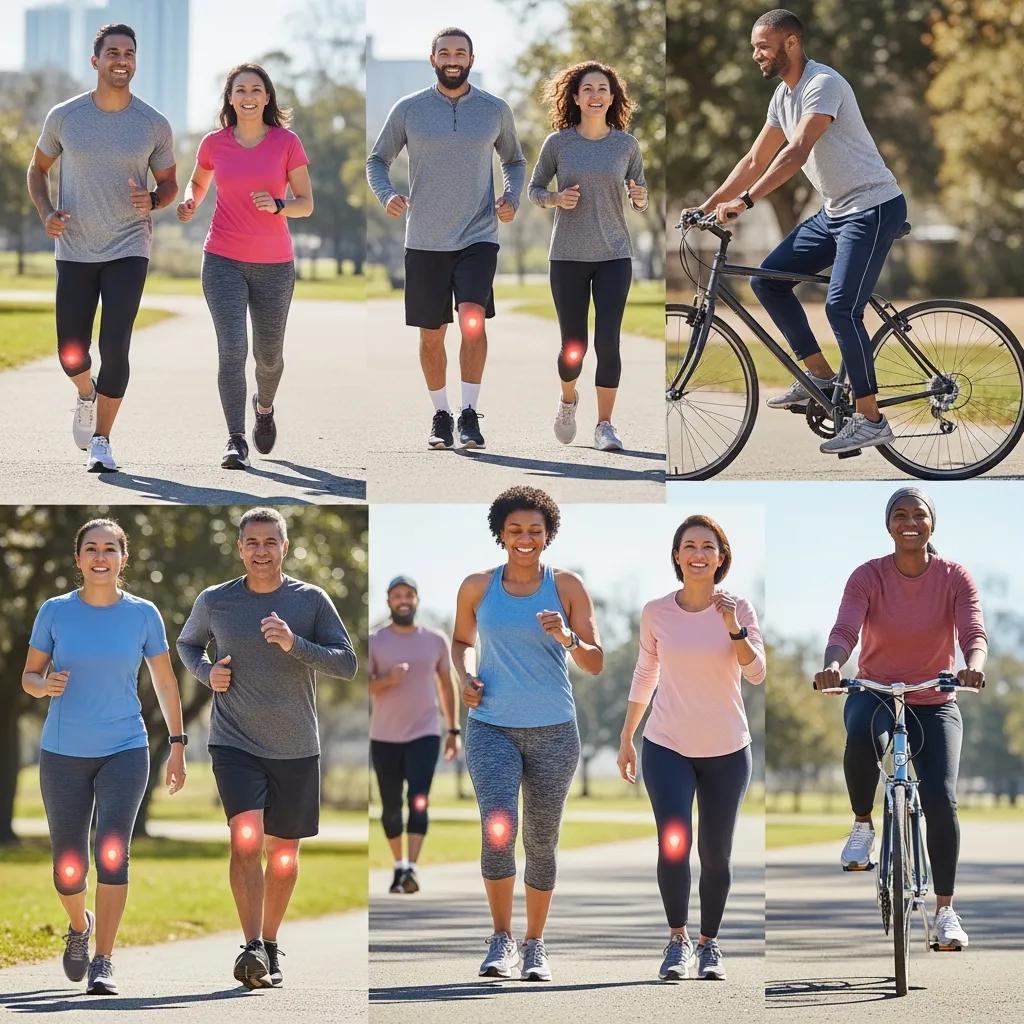Your Guide to Orthopaedic Recovery in Houston: Finding Relief and Restoring Function
Are you experiencing persistent or sudden musculoskeletal pain that’s impacting your daily life, work, or overall well-being? Orthopaedic services right here in Houston offer precise diagnostics, comprehensive treatments, and proven recovery plans designed to get you moving comfortably again. This guide will walk you through the common orthopaedic issues faced by our community, explore both surgical and non-surgical solutions, help you choose the right specialist, share inspiring patient journeys, highlight new advancements, and show you how to book your expert consultation. Whether it’s joint stiffness, back discomfort, nerve pain, or sports injuries, this resource provides a clear path to recovery and empowers you to make informed decisions about your orthopaedic health.
What Are the Most Common Orthopaedic Pain Conditions Affecting Houston Residents?
Orthopaedic pain conditions involve a variety of musculoskeletal issues that can limit your movement, cause inflammation, and interfere with your daily activities. These conditions can stem from everyday wear and tear, sudden injuries, nerve issues, or ongoing degeneration, all of which benefit from accurate diagnosis and personalized treatment. Many patients in Houston commonly experience joint pain, spinal problems, nerve-related discomfort (neuropathy), and sports injuries, each requiring specialized care that combines rehabilitation, pain management, and innovative regenerative approaches.
Which Joint Pain Conditions Require Orthopaedic Care in Houston?
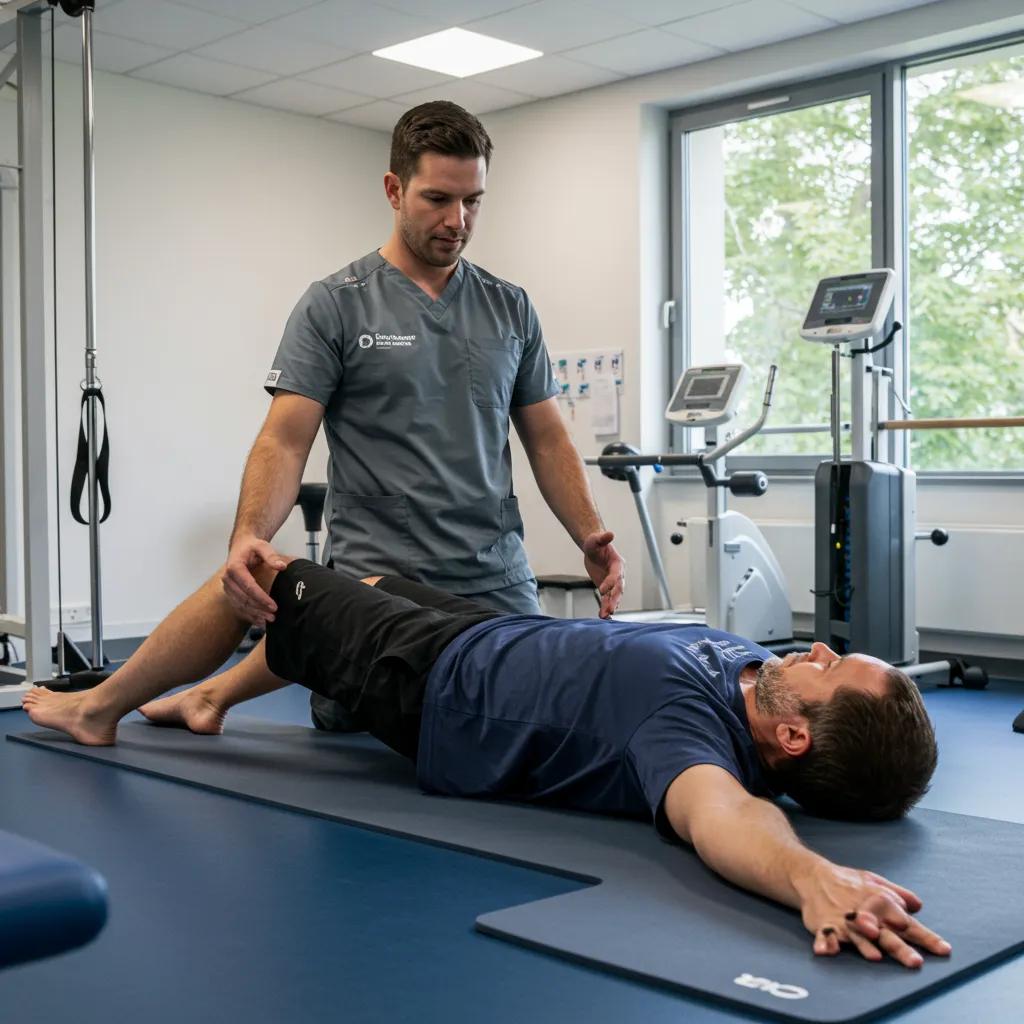
Joint pain among Houston residents often arises from degenerative changes, inflammatory conditions, or overuse injuries. Osteoarthritis, for instance, is characterized by cartilage breakdown, leading to reduced joint mobility and stiffness. Bursitis can cause localized swelling and tenderness in areas like the hip, knee, or shoulder. Rheumatoid arthritis, on the other hand, triggers widespread inflammation that can affect multiple joints. Early orthopaedic assessment, utilizing imaging and functional tests, is crucial for identifying the root cause. This guides non-surgical treatments such as lifestyle adjustments, targeted injections, and bracing to reduce inflammation and preserve joint health.
What Causes Back and Spine Pain in Houston Patients?
Back and spine pain can result from issues with the discs between your vertebrae, stress on the facet joints, or nerve compression, all of which can affect spinal stability and nerve function. Herniated discs occur when the soft inner part of a disc pushes through its outer layer, potentially irritating nearby nerves and causing pain that radiates down the leg (sciatica). Degenerative disc disease gradually weakens the spinal discs over time, while spinal stenosis involves a narrowing of the spinal canal, restricting nerve movement. Orthopaedic specialists assess spinal alignment, muscle strength, and nerve function to recommend treatments like targeted physical therapy, spinal decompression, or minimally invasive procedures to relieve pressure and restore core support.
How Is Neuropathy Diagnosed and Treated in Houston Orthopaedic Clinics?
Peripheral neuropathy affects the nerves outside the brain and spinal cord, often causing numbness, tingling, or burning sensations, typically in the hands and feet. Diagnosis involves a thorough neurological exam, nerve conduction studies, and blood tests to pinpoint underlying causes like diabetes, vitamin deficiencies, or nerve compression. Houston orthopaedic clinics offer integrated non-surgical management for neuropathy by addressing these root causes. Regenerative medicine techniques and nerve stimulation therapies can aid nerve repair, while rehabilitation exercises help improve function and reduce symptoms.
What Are Typical Sports Injuries and Musculoskeletal Trauma in Houston?
Sports injuries common in Houston include acute ligament tears, tendon ruptures, stress fractures, and bruising. Injuries like anterior cruciate ligament (ACL) tears, rotator cuff tears, and ankle sprains can significantly impact athletic performance and daily mobility. Musculoskeletal trauma from falls or accidents can lead to bone fractures or soft tissue damage. Orthopaedic recovery plans typically involve prompt injury evaluation, immobilization if needed, followed by a structured rehabilitation program to rebuild strength, restore range of motion, and correct movement patterns that could lead to re-injury.
What Non-Surgical Orthopaedic Treatments Are Available in Houston for Recovery?
Non-surgical orthopaedic treatments in Houston are designed to restore function, ease pain, and promote tissue healing without the need for surgery. These methods utilize physical therapies, regenerative treatments, and targeted pain relief strategies to speed up recovery and minimize surgical risks.
Physical therapy helps improve joint mobility, strengthens supporting muscles, and corrects movement patterns to enhance stability and resilience. Clinics in Houston, such as OrthoSouth, provide comprehensive physical therapy, including specialized programs for back and neck pain.
Regenerative medicine uses injections of natural substances to encourage the body’s own healing processes and reduce inflammation. OrthoSouth’s Orthobiologic Medicine Center incorporates advanced orthobiological science and techniques, offering treatments like bone marrow therapy and growth factor therapy.
Injection-based pain management effectively reduces local inflammation and nerve sensitivity, providing quick relief and supporting rehabilitation efforts. OrthoSouth offers various injection therapies, including corticosteroid and hyaluronic acid injections, to manage arthritis symptoms.
| Treatment Method | How It Works | Key Benefit |
|---|---|---|
| Physical Therapy | Guided exercises and movement | Boosts mobility and muscle support |
| Regenerative Medicine (PRP) | Using your body’s growth factors | Speeds up tissue repair and lowers inflammation |
| Corticosteroid Injections | Reducing inflammation | Offers fast pain relief and better function |
These non-invasive options serve as a crucial bridge between initial symptom relief and long-term functional recovery, preparing you to return to your activities without the risks associated with surgery.
How Does Physical Therapy Support Orthopaedic Recovery in Houston?
Physical therapy begins by identifying specific functional limitations and then creating tailored exercise programs to rebuild strength, flexibility, and body awareness (proprioception). Early sessions focus on gentle movements to ease pain, progressing to resistance exercises that restore muscle balance and joint stability. Techniques like manual therapy, gait training, and neuromuscular re-education help correct faulty movement patterns and prevent future injuries. By reinforcing proper biomechanics, physical therapy accelerates healing and equips you with strategies for maintaining long-term joint health.
What Regenerative Medicine Options Are Offered in Houston Orthopaedic Clinics?
Regenerative medicine in Houston focuses on injectable treatments, such as platelet-rich plasma (PRP) and stem cell preparations, that leverage the body’s natural healing capabilities. OrthoSouth’s Orthobiologic Medicine Center provides treatments including bone marrow therapy and growth factor therapy.
Which Injections and Pain Management Techniques Are Common in Houston?
Common orthopaedic injections include corticosteroids to reduce inflammation in joints or spinal areas, and hyaluronic acid to enhance joint lubrication. Nerve block injections use local anesthetics and steroids to interrupt pain signals along nerve pathways. Newer techniques like radiofrequency ablation offer longer-lasting relief by targeting pain-transmitting nerves. OrthoSouth offers a range of injection therapies, such as corticosteroid and hyaluronic acid injections, for managing arthritis symptoms.
What Complementary Therapies Enhance Orthopaedic Recovery in Houston?
Complementary therapies that support orthopaedic recovery include chiropractic adjustments, acupuncture, and therapeutic massage, which help improve musculoskeletal alignment and promote muscle relaxation. Chiropractic care aims to realign the spine for better nerve function and reduced mechanical stress, while acupuncture stimulates the body’s natural pain-relief pathways. Massage therapy helps alleviate muscle tension and improve blood flow. When used alongside primary treatments, these holistic approaches contribute to comprehensive pain management and support lasting recovery.
When Is Surgery Considered for Orthopaedic Conditions in Houston?
Surgical intervention is typically considered when conservative treatments haven’t restored function, persistent instability remains, or a progressive deformity is impacting mobility. Surgery addresses significant mechanical damage, structural breakdown, or advanced conditions that haven’t responded to non-invasive options, offering a definitive solution for symptom relief.
What Are the Most Common Orthopaedic Surgeries Performed in Houston?
Common orthopaedic surgeries in Houston include total joint replacements for severe hip and knee arthritis, spinal decompression and fusion for significant disc issues, and arthroscopic repairs for torn ligaments or cartilage. OrthoSouth performs total joint replacements and arthroscopic procedures for a variety of conditions.
How Do Minimally Invasive Surgical Techniques Improve Recovery?
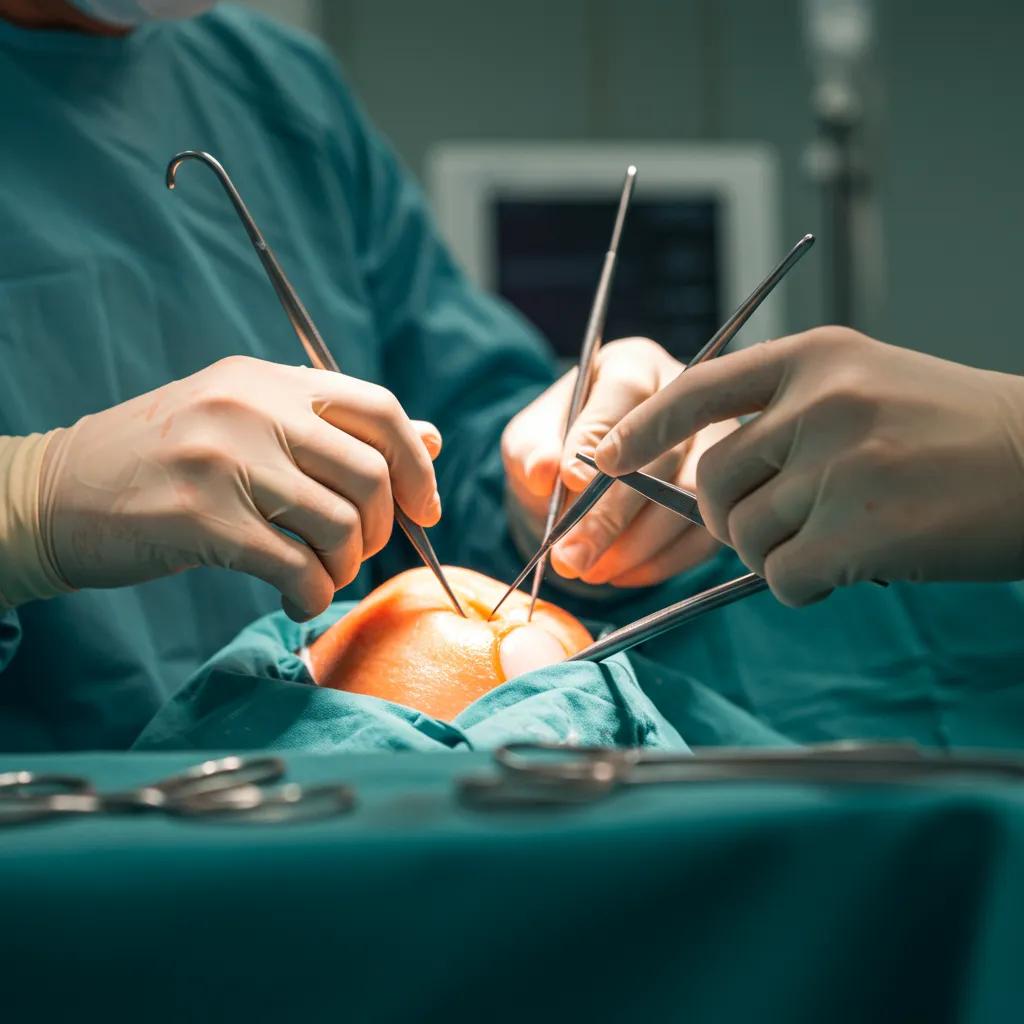
Minimally invasive orthopaedic procedures utilize specialized instruments and small incisions to minimize tissue damage, reduce blood loss, and lessen postoperative pain. Techniques like endoscopic spine surgery and arthroscopic joint repair involve less disruption to muscles and preserve surrounding anatomy. Patients often experience shorter hospital stays, quicker returns to activity, and fewer complications. By reducing collateral damage, these advanced techniques shorten recovery times and improve the overall patient experience.
Research shows that minimally invasive techniques can lead to significantly faster recovery and fewer complications compared to traditional surgery.
Faster Recovery After Minimally Invasive Knee Surgery
The MIS group showed faster recovery with immediate postoperative full weight-bearing and shorter length of stay (5 vs 10 days). Comparable Knee Society Scores (87.5 vs 88), function scores (90) and alignment (5.5° vs 5.2°) between the CON and MIS group were observed at a follow-up of 24 months. No increase in operative times (52 vs 51 min tourniquet time) or no complications were observed. Reduced blood loss was observed in the MIS group (590 vs 989 ml).
The MCL sparing limited medial parapatellar approach allows good surgical exposure, easy extension proximally if necessary, contained closure after surgery with less bleeding, faster recovery, full weight-bearing without aid and most importantly no radiological malalignment.
Faster recovery after minimally invasive surgery in total knee arthroplasty, E Thienpont, 2013
| Procedure Type | Minimally Invasive Feature | Recovery Advantage |
|---|---|---|
| Arthroscopic Meniscus Repair | Small incisions and camera guidance | Less pain after surgery and quicker rehabilitation |
| Endoscopic Spine Decompression | 1–2 cm openings to access the spine | Less muscle damage and shorter hospital stays |
| Robotic-assisted Joint Replacement | Precise placement of implants | Improved alignment and earlier movement |
What Should Patients Expect During Post-Surgical Orthopaedic Recovery in Houston?
Post-surgical recovery typically begins with effective pain management, early movement, and a clear rehabilitation plan. Patients follow a structured program that includes physical therapy, wound care, and gradual increases in activity to regain strength and flexibility. Pain management strategies evolve from medication to targeted injections and non-drug methods. Close monitoring ensures proper healing, while achieving functional milestones guides the transition from assisted movement to independent activities and a return to daily life.
How Do You Choose the Right Orthopaedic Provider in Houston for Your Recovery?
Selecting the right orthopaedic clinic is key to accurate diagnosis, a wide range of treatment options, and excellent patient care. Important factors include the provider’s qualifications, the available therapies, personalized treatment planning, and the clinic’s overall approach to care.
What Factors Should You Consider When Selecting an Orthopaedic Clinic in Houston?
Start by confirming the surgeon’s and therapist’s credentials, including any specialized training and board certifications, to ensure they have the necessary expertise. Assess the clinic’s range of treatment options, from conservative rehabilitation to advanced regenerative therapies, to ensure they meet your specific recovery needs. Look for patient-centered care, such as individualized treatment plans, educational resources, and supportive services. Finally, consider the facility’s amenities and follow-up care protocols to ensure seamless continuity of care and convenient access to rehabilitation resources.
Why Is a Personalized Treatment Plan Important for Orthopaedic Recovery?
A personalized treatment plan sets clear goals, combines various therapies, and adapts to your individual lifestyle, health status, and functional requirements. Customization ensures that rehabilitation exercises target your specific weaknesses, regenerative treatments are applied precisely where needed, and the pace of recovery respects your body’s healing rate. Personalization helps avoid over- or under-treatment, maximizes the effectiveness of therapies, and empowers you to actively participate in your own recovery.
How Does OrthoSouth’s Expertise in Non-Surgical Orthopaedics Inform Your Choice?
OrthoSouth’s Orthobiologic Medicine Center integrates advanced orthobiological science and techniques into their practice, offering treatments such as bone marrow therapy and growth factor therapy.
What Are Patient Experiences and Success Stories in Orthopaedic Recovery in Houston?
Real-life patient outcomes demonstrate the significant positive impact of comprehensive orthopaedic care. Residents in Houston frequently report restored mobility, reduced pain, and renewed confidence after completing structured non-surgical and surgical treatment plans.
How Have Houston Patients Benefited from Non-Surgical Orthopaedic Treatments?
Patients who received platelet-rich plasma injections for knee osteoarthritis have reported less swelling and improved joint function within weeks, allowing them to resume daily activities without relying on pain medication. Individuals with chronic back pain treated with regenerative cellular therapies have experienced substantial reductions in inflammation and nerve-related discomfort, leading to better core strength and posture. Complementary chiropractic and acupuncture sessions have further enhanced these results by optimizing spinal alignment and muscle balance.
What Can You Expect During Your Orthopaedic Recovery Journey in Houston?
Your recovery journey typically starts with a thorough evaluation and a personalized plan, followed by progressive therapy phases. The initial weeks focus on managing pain and gentle movement, then advance to strength training and functional exercises. Regular progress assessments ensure you’re meeting milestones, with treatment adjustments made as needed. Most patients transition from clinic-based sessions to an independent home exercise program within two to three months, achieving lasting improvements in mobility and quality of life.
What Are the Latest Trends and Statistics in Orthopaedic Recovery and Non-Surgical Treatments?
The field of orthopaedic recovery is rapidly evolving, driven by patient preference for less invasive options, technological advancements, and a growing body of evidence supporting regenerative therapies.
How Is the Growth of Non-Surgical Orthopaedics Impacting Houston Patients?
Nationally, the non-surgical orthopaedics market has seen significant growth over the past five years, as more patients choose biologic therapies and functional rehabilitation over traditional surgery. Clinics in Houston are observing increased use of platelet-rich plasma and stem cell injections, reflecting a broader acceptance of regenerative approaches. This trend is helping to lower overall complication rates and shorten recovery times, enabling more patients to return to active lifestyles sooner.
What Does Research Say About Regenerative Medicine Effectiveness?
Clinical studies published in leading orthopaedic journals indicate that PRP injections can lead to significant pain reduction and functional improvement in osteoarthritis patients within six months, with over 60 percent reporting sustained benefits. Early trials of stem cell therapies show promising results for cartilage regeneration, with documented increases in joint space and tissue quality. Ongoing research continues to refine treatment protocols, optimize cell processing, and expand the applications of these therapies for various musculoskeletal conditions.
How Are Minimally Invasive Procedures Changing Orthopaedic Surgery in Houston?
Minimally invasive techniques now account for a larger portion of orthopaedic surgeries, contributing to a 30 percent reduction in postoperative pain and an average decrease of two days in hospital stays. Robotic assistance is enhancing precision in joint replacement surgery, leading to better alignment and longer implant lifespan. Endoscopic spine procedures are associated with lower complication rates and faster functional recovery. Houston surgeons are increasingly adopting these methods to improve patient outcomes and align with leading national practices.
How Can You Schedule a Consultation for Orthopaedic Care with Experts Like OrthoSouth?
To schedule an orthopaedic consultation, gather your relevant medical information, clarify your recovery goals, and choose a clinic that matches your preferences for care methods and support services.
What Should You Prepare for Your Orthopaedic Consultation?
Compile a brief medical history, including past injuries, surgeries, and current medications. Note the specific locations of your pain, how your symptoms present, and any limitations you’re experiencing. Prepare questions about diagnostic tests, treatment options, and expected recovery timelines. Bringing any imaging studies or previous therapy records can help streamline the assessment process and facilitate collaborative planning.
How Does OrthoSouth Support Patients Seeking Non-Surgical Recovery?
OrthoSouth’s Orthobiologic Medicine Center integrates advanced orthobiological science and techniques into their practice, offering treatments such as bone marrow therapy and growth factor therapy.
Where Can You Find More Information About Orthopaedic Services in Houston?
For detailed information on non-surgical treatments for joints, back pain, and neuropathy, explore the service descriptions and patient resources on the OrthoSouth website. This comprehensive resource offers guidance specific to conditions, explains how therapies work, and outlines the steps for scheduling a consultation. By comparing the offerings of Houston-area providers with proven treatment methods, you can select the recovery path that best suits your needs and achieve lasting pain relief.
Regaining mobility and reducing pain through orthopaedic care requires timely intervention, thorough planning, and expert guidance. Houston provides a wide array of non-surgical and surgical options tailored to various conditions, from joint degeneration to spinal nerve compression. By understanding common pain issues, exploring treatment possibilities, learning from patient success stories, and staying informed about new developments, you can confidently navigate your recovery. Take a proactive approach, discuss personalized plans with your provider, and begin your journey toward renewed strength and function today.
Frequently Asked Questions
What lifestyle changes can support orthopaedic recovery in Houston?
Making specific lifestyle changes can significantly enhance your orthopaedic recovery. Incorporating a balanced diet rich in anti-inflammatory foods, such as fruits, vegetables, and omega-3 fatty acids, can promote healing. Regular low-impact exercises, like swimming or cycling, help maintain joint mobility without excessive strain. Additionally, ensuring adequate hydration and getting enough sleep are crucial for recovery. Avoiding smoking and limiting alcohol consumption can also improve healing outcomes. Consulting with your orthopaedic specialist can provide personalized recommendations tailored to your recovery journey.
How can I manage pain during my orthopaedic recovery?
Managing pain during orthopaedic recovery involves a combination of strategies. Over-the-counter pain relievers, such as ibuprofen or acetaminophen, can help alleviate discomfort. Physical therapy plays a vital role in pain management by improving mobility and strength, which can reduce pain over time. Additionally, techniques like ice therapy, heat application, and relaxation exercises can provide relief. If pain persists, your orthopaedic provider may recommend more advanced options, such as nerve blocks or prescription medications, to ensure you remain comfortable throughout your recovery.
What role does nutrition play in orthopaedic recovery?
Nutrition is a critical component of orthopaedic recovery, as it directly impacts healing and overall health. Consuming a diet rich in vitamins and minerals, particularly calcium and vitamin D, supports bone health and repair. Protein is essential for muscle recovery and tissue repair, so including lean meats, legumes, and dairy products is beneficial. Antioxidant-rich foods, such as berries and leafy greens, can help reduce inflammation. A well-rounded diet not only aids recovery but also enhances energy levels, enabling you to engage more effectively in rehabilitation activities.
Are there any specific exercises recommended for orthopaedic recovery?
Specific exercises for orthopaedic recovery depend on the injury or condition being treated. Generally, low-impact activities like swimming, cycling, and walking are recommended to maintain cardiovascular fitness without stressing the joints. Strength training exercises focusing on core stability and muscle balance are also crucial. Your physical therapist can design a tailored exercise program that includes stretching, strengthening, and functional movements to promote recovery. Always consult your healthcare provider before starting any new exercise regimen to ensure it aligns with your recovery goals.
How can I prevent future orthopaedic injuries?
Preventing future orthopaedic injuries involves a proactive approach to health and fitness. Engaging in regular strength training and flexibility exercises can enhance muscle support around joints, reducing the risk of injury. Proper warm-up and cool-down routines before and after physical activities are essential to prepare your body for exertion. Additionally, using appropriate footwear and equipment during sports can help prevent injuries. Staying aware of your body’s limits and avoiding overexertion are crucial. Regular check-ups with your orthopaedic provider can also help identify potential issues before they become serious.
What should I expect during my first visit to an orthopaedic clinic?
During your first visit to an orthopaedic clinic, you can expect a comprehensive evaluation. The orthopaedic specialist will review your medical history, discuss your symptoms, and perform a physical examination to assess your condition. Diagnostic tests, such as X-rays or MRIs, may be ordered to gain further insight into your issue. Based on the findings, the provider will discuss potential treatment options, which may include non-surgical therapies or surgical interventions if necessary. This visit is an opportunity to ask questions and clarify your recovery goals.

